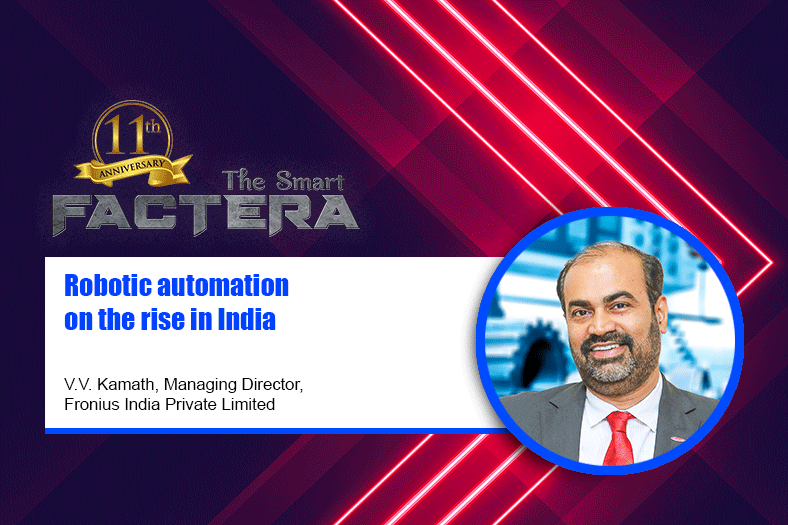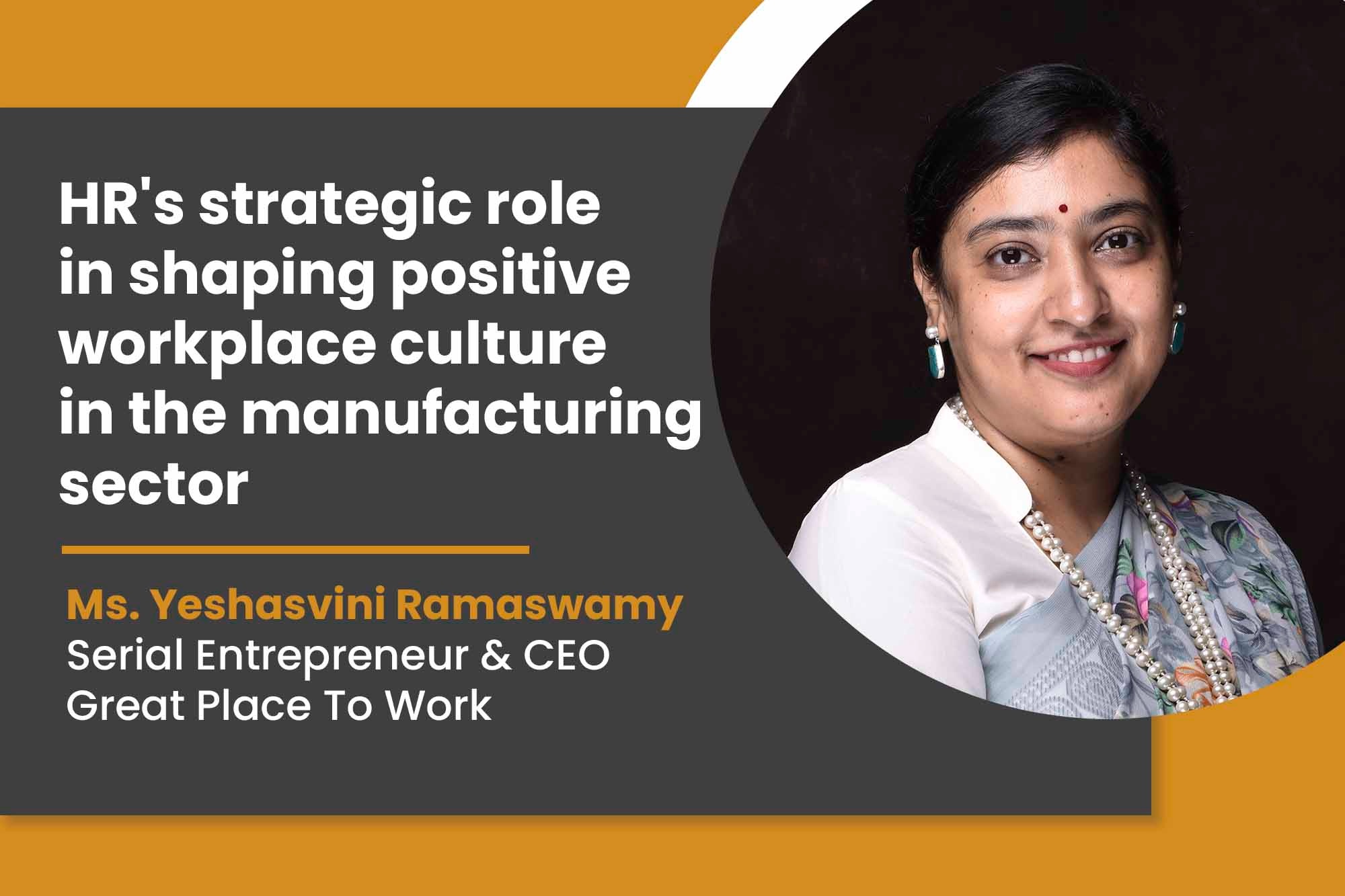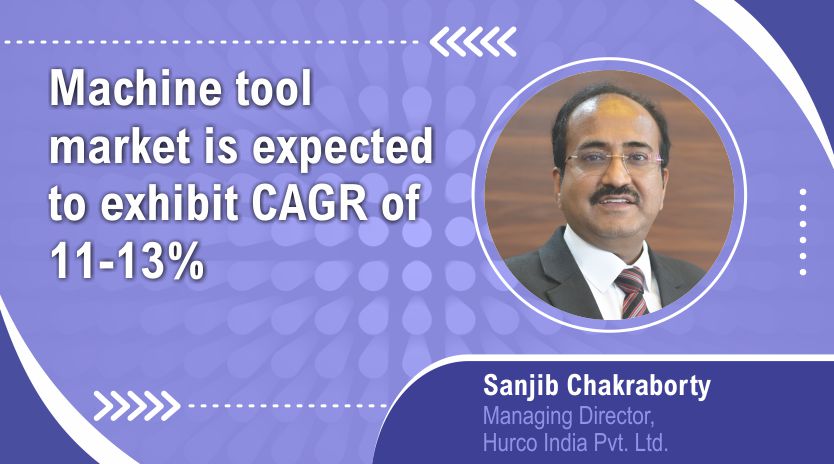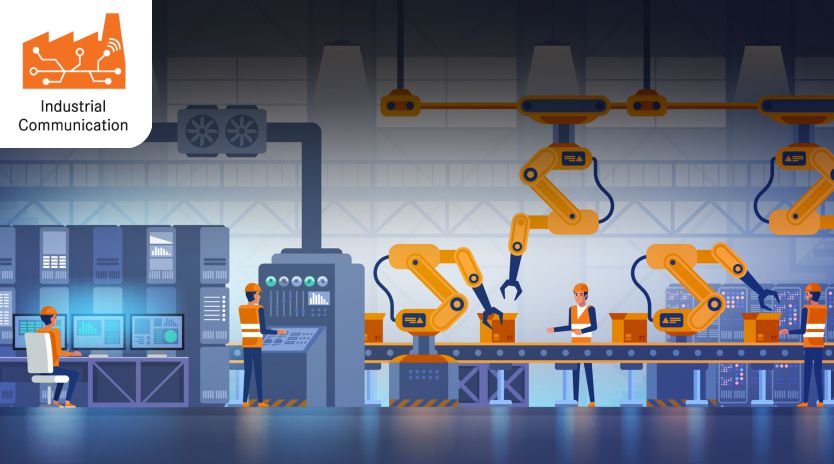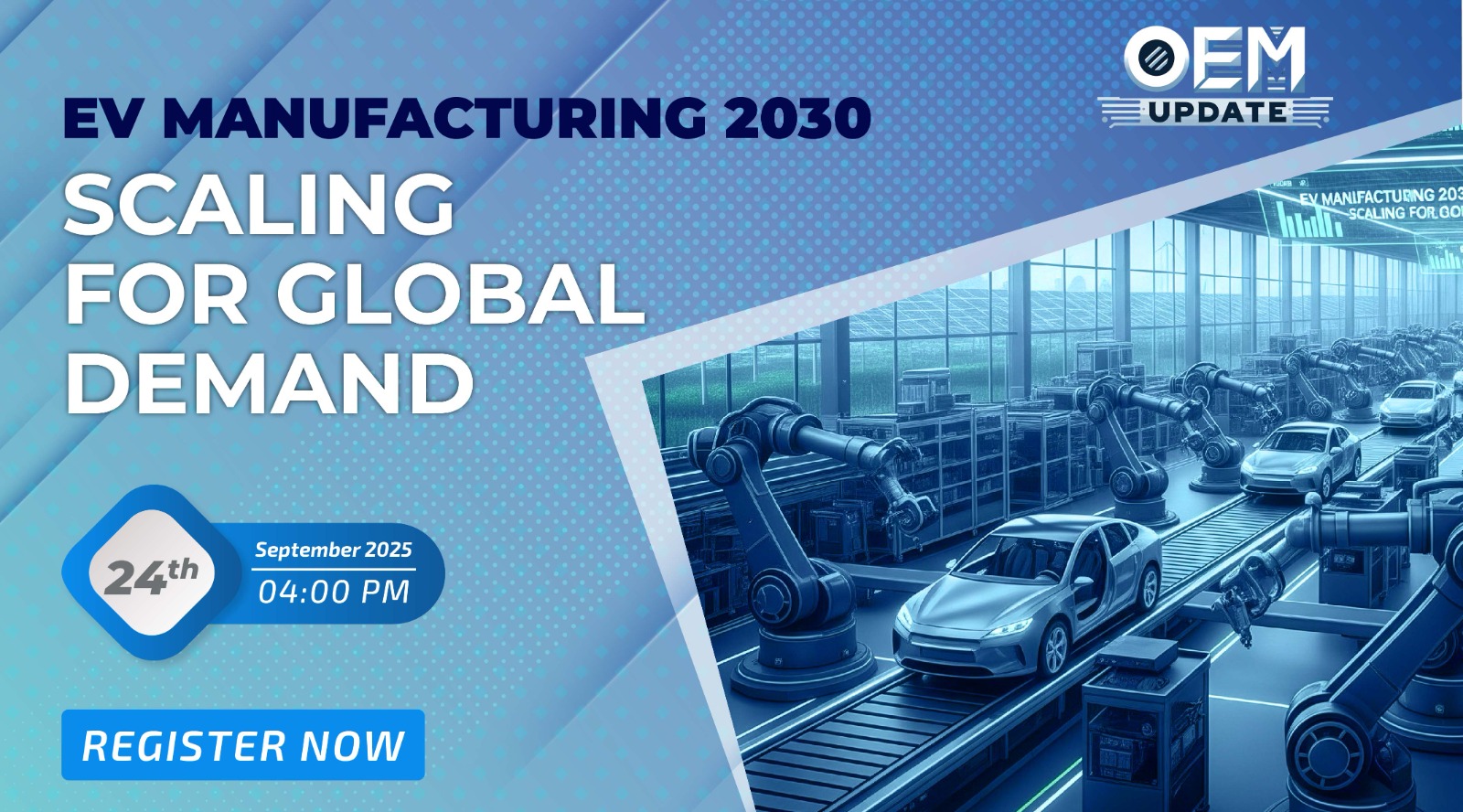Robotic automation on the rise in India
By OEM Update Editorial June 10, 2020 1:17 pm IST
Robotic automation is growing in India and in the coming days this sector is expected do well.
V.V. Kamath, Managing Director, Fronius India Private limited, talks about the need to adapt existing machineries as well as data integration to the smart factory environment. He also elaborates on how smart technologies are adding a competitive edge to manufacturing capabilities.
How has your company’s journey been in the adoption of smart factories?
In order to implement Industry 4.0, we need to have changes made in machine construction like memory configuration, Ethernet port, data acquiring from the source, etc. So Fronius decided to make welding in the new platform with completely modified hardware to adapt to Industry 4.0 in the year 2013. From there, our journey started and we are now fully ready for Industry 4.0 to the extent that we can interface our Industry 4.0 solution to suit the customer ERP/MES system with proper interface tools and adoptability.
What kind of steps do companies, including MSMEs, need to take for the adoption of smart factories?
Industry 4.0 is to collect the data to improve the efficiency of the organisation. Firstly, the MSMEs have to decide what they want to achieve out of the data and which data is important for their operation.
The second point is that in order to acquire the data from a machine, the necessary hardware and software modification is required, without which collecting the data from the machine is difficult.
Today, OEMs and equipment suppliers have Industry 4.0 solutions. For example, a robot OEM will provide the Industry 4.0 solution as per their product and services. A welding equipment supplier will provide the solution with respect to welding related to parameters. But if an MSME wants to have the integrated data of the robot and welding machine, then they need to use a third party to integrate this. So the MSME has to either have the machinery which is suitable to provide the necessary data or to update as necessary.
How have machine learning (ML), artificial intelligence (AI), robotics, automation and big data been implemented by OEMs to move towards a Connected Enterprise?In order to implement this, the automation level in the factories has to be of high order. But in India, few automotive companies have implemented automation up to 80 level. Other industries are yet to have this kind of automation implementation due to cost implication in using these technologies. The higher technical education sectors are in the process of offering such courses and also doing intensive projects for the proper implementation of ML and AI. Robotic automation is growing in India and in the coming days this sector is expected do well.
What are the challenges faced by OEMs while transitioning towards smart factories?
The biggest challenge is that we have old machineries and adapting those machineries to smart factory is the practical challenge, and also the integration of various machinery data to the MES/ERP system and thereby interfacing the same is a real challenge with limited resources.
What kind of technological advancements can we expect with respect to smart manufacturing in the coming years?
In coming days, people can calculate the cost of manufacturing, maintenance, and product failures through smart technologies from the comfort of their desk. This will help them predict the production cost and help the industry to be more efficient and competitive in their field.
Cookie Consent
We use cookies to personalize your experience. By continuing to visit this website you agree to our Terms & Conditions, Privacy Policy and Cookie Policy.



